Intel Core i9-13900K and i5-13600K Review: Raptor Lake Brings More Bite
by Gavin Bonshor on October 20, 2022 9:00 AM ESTCPU Benchmark Performance: Rendering And Encoding
Rendering tests, compared to others, are often a little more simple to digest and automate. All the tests put out some sort of score or time, usually in an obtainable way that makes it fairly easy to extract. These tests are some of the most strenuous in our list, due to the highly threaded nature of rendering and ray-tracing, and can draw a lot of power.
If a system is not properly configured to deal with the thermal requirements of the processor, the rendering benchmarks are where it would show most easily as the frequency drops over a sustained period of time. Most benchmarks in this case are re-run several times, and the key to this is having an appropriate idle/wait time between benchmarks to allow for temperatures to normalize from the last test.
One of the interesting elements of modern processors is encoding performance. This covers two main areas: encryption/decryption for secure data transfer, and video transcoding from one video format to another.
In the encrypt/decrypt scenario, how data is transferred and by what mechanism is pertinent to on-the-fly encryption of sensitive data - a process by which more modern devices are leaning to for software security.
We are using DDR5 memory on the Core i9-13900K, the Core i5-13600K, the Ryzen 9 7950X, and Ryzen 5 7600X, as well as Intel's 12th Gen (Alder Lake) processors at the following settings:
- DDR5-5600B CL46 - Intel 13th Gen
- DDR5-5200 CL44 - Ryzen 7000
- DDR5-4800 (B) CL40 - Intel 12th Gen
All other CPUs such as Ryzen 5000 and 3000 were tested at the relevant JEDEC settings as per the processor's individual memory support with DDR4.
Rendering
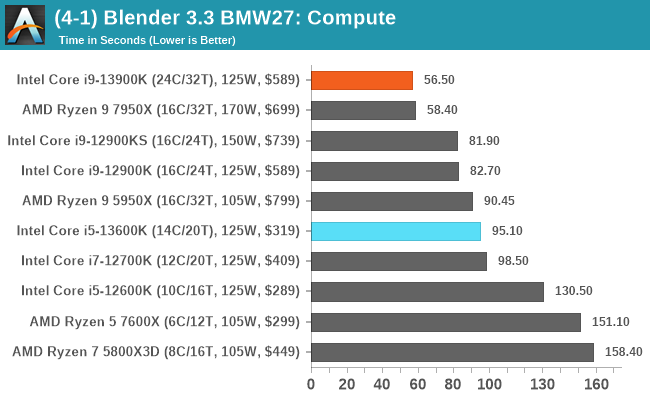
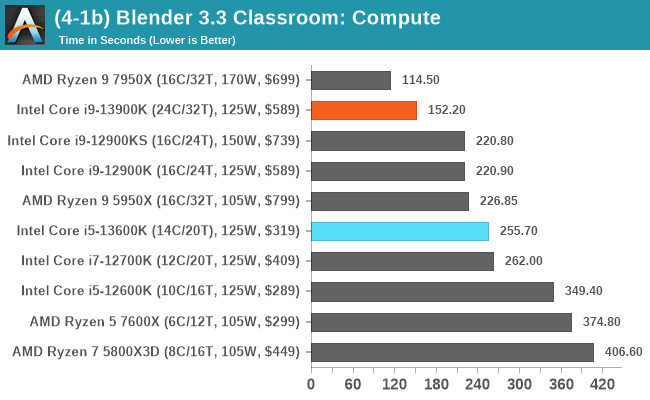
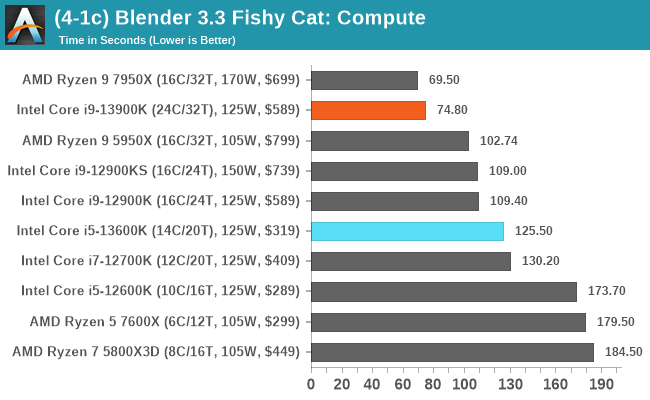
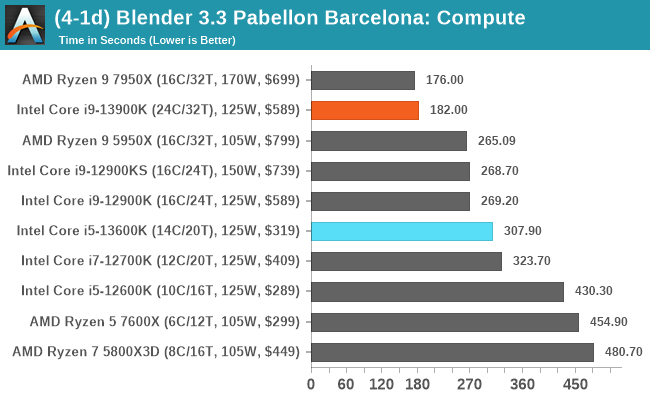
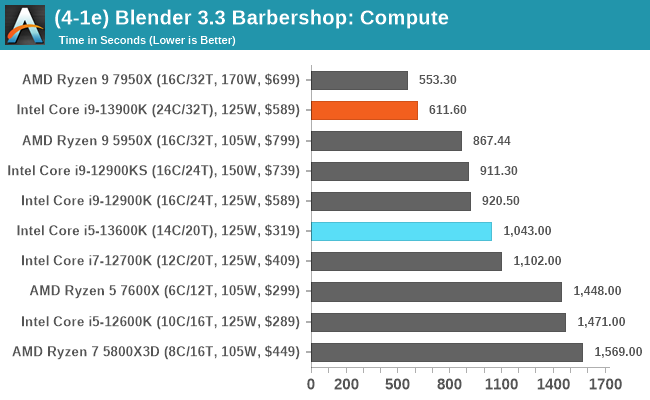
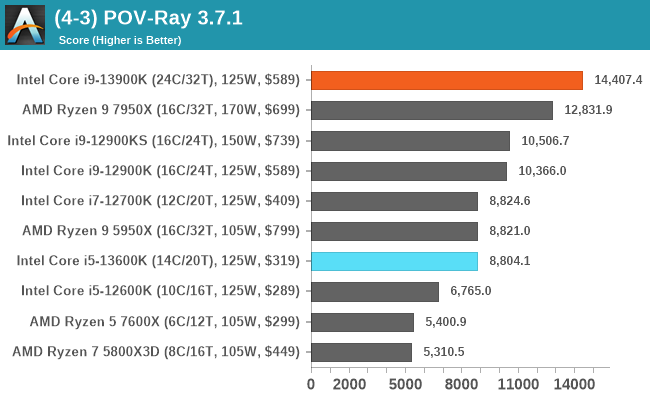
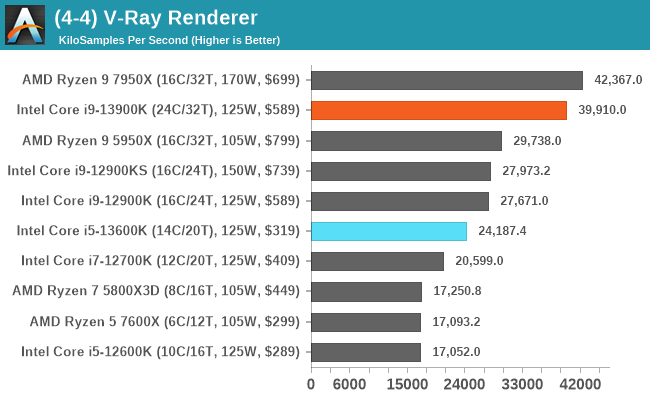
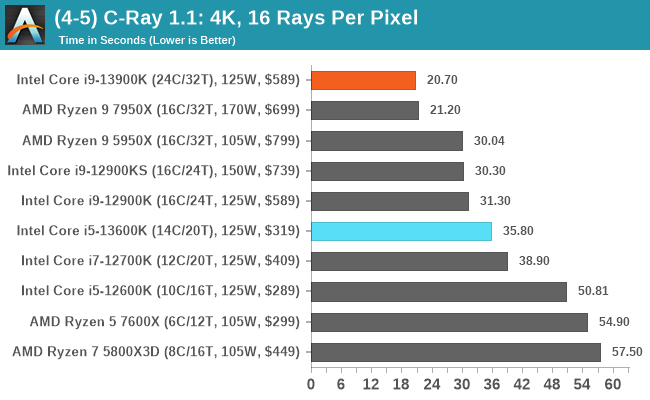
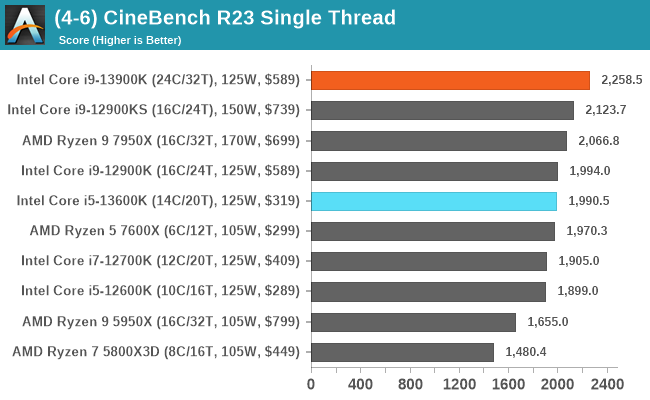
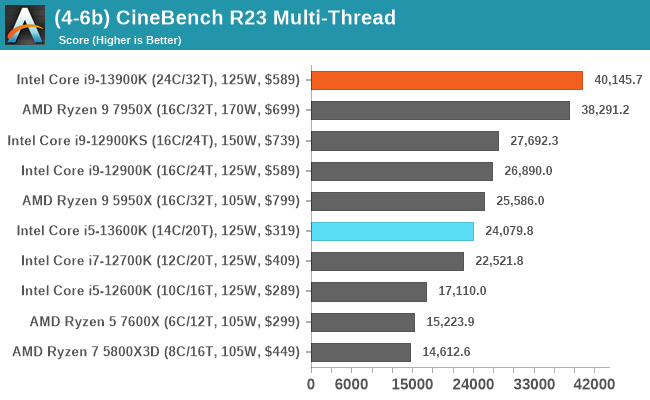
Identifying what core comes where in our rendering tests, both the Core i9-13900K and Ryzen 9 7950X sit comfortably at the top of the tree. Depending on the test, it’s a consistent battle for rendering supremacy. Where things aren’t as close are in our POV-Ray and V-Ray tests, where the Core i9-13900K has a distinct advantage; likely down to having eight more logical cores than the 7950X.
Encoding
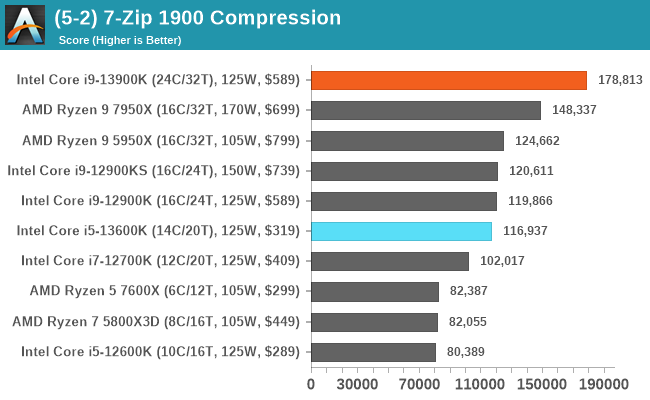
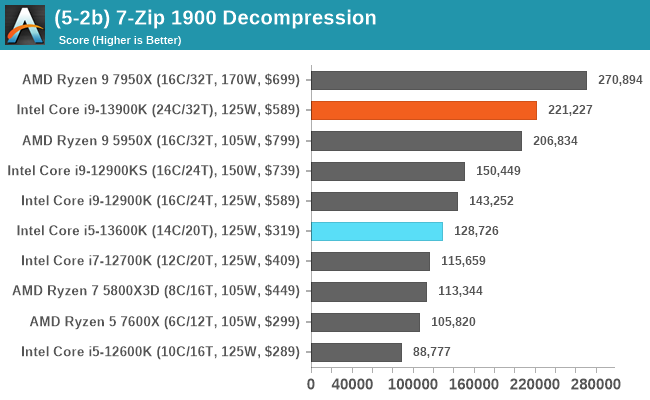
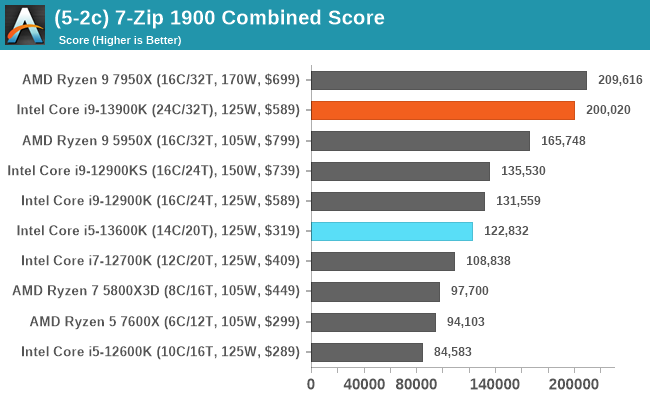
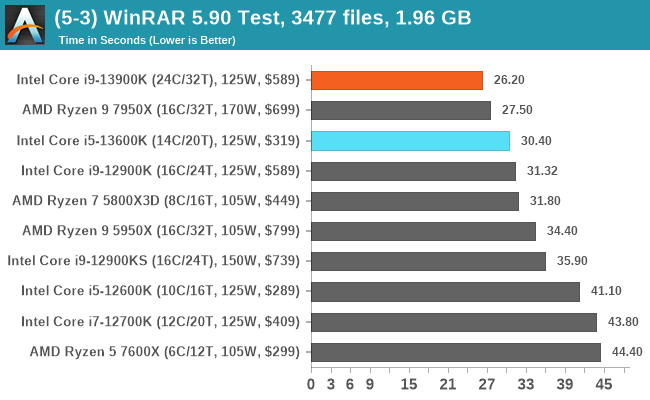
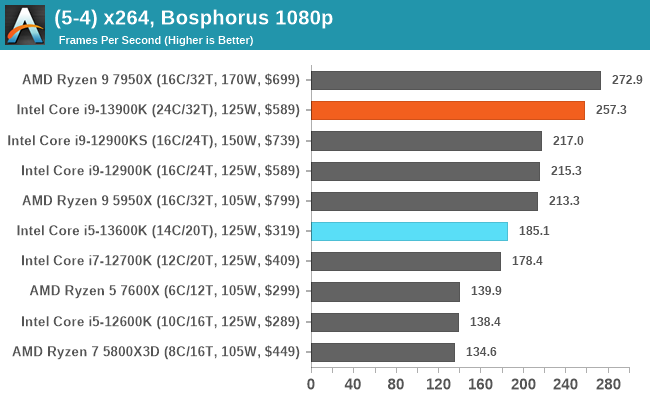
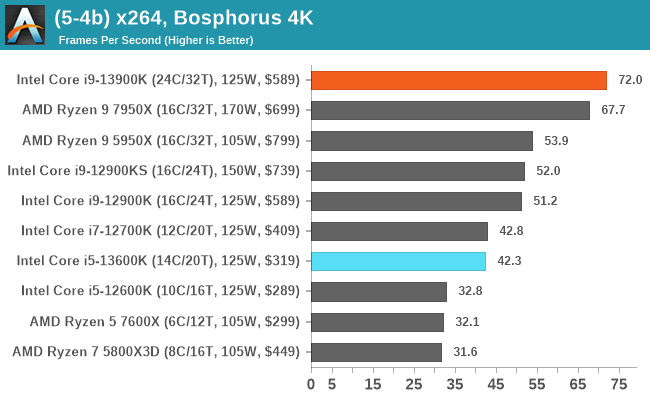
In our encoding tests, interestingly the Core i9-13900K looks to have the advantage in compressing files with 7-Zip. It’s a little different for AMD as the Ryzen 9 7950X decompresses the data better, with the overall combined advantage going to AMD in this particular test. In our updated x264 benchmark, Intel takes the lead in 4K encoding, while AMD has the lead in 1080p encoding; both are equally viable options, however.










169 Comments
View All Comments
shabby - Thursday, October 20, 2022 - link
http://uploads.disquscdn.com/images/ce6075096ed8d9...Sometimes you need to go elsewhere to get what you need. Reply
shabby - Thursday, October 20, 2022 - link
7700x uses 80w less during gaming than 13700k. ReplyCT007 - Sunday, October 23, 2022 - link
7700X is an awesome chip for pure gaming... I don't understand why it has been excluded in so many major benchmarks I've scene lately. Replytitaniumrock - Thursday, October 20, 2022 - link
her is a link for you https://www.youtube.com/watch?v=H4Bm0Wr6OEQ Replym53 - Friday, October 21, 2022 - link
For gaming: 13900k is more effecient than Ryzen per Igor’s lab’s test. Here’s what he has to say:“From a purely statistical point of view, it is a clear victory of the Core i9-13900K against the Ryzen 9 7950X in gaming, although life does not only consist of pure gaming. The Core i9-13900K often wins in the workstation and creation field, but not always. And even if it is even a tad more efficient at gaming than AMD’s Ryzen 9 7950X counterpart…”
Link: https://www.igorslab.de/en/intel-core-i9-13900k-an...
For idle: Given below is a comprehensive review for Alder Lake vs Zen3 done by Tech notice. He found Ryzen to use almost 4x during idle. He also tested some realistic day to day use cases where 12th gen was more efficient than Ryzen. I expect it to continue with 13th gen vs zen4.
https://youtu.be/4F2z3F64o94 Reply
t.s - Friday, October 21, 2022 - link
Pity there's no from the wall numbers. ReplyWrs - Friday, October 21, 2022 - link
Socket power is a fair comparison - both sides have comparable socket PCIe lanes and chipset lanes. When using wall numbers for Intel vs. AMD you introduce motherboard and component variability. Even using the same CPU you'll find motherboards can vary by 10-20W at load due to VRM quality differences. Replyt.s - Saturday, October 22, 2022 - link
yep, you're right. I just curious about the consumption from the wall. Replycatavalon21 - Sunday, October 23, 2022 - link
CPU reviews used to. https://www.anandtech.com/bench/CPU-2020/2734 Replymeacupla - Thursday, October 20, 2022 - link
Intel is really pushing those e-cores. Do they really help with keeping power draw to a minimum while doing low power tasks? Reply